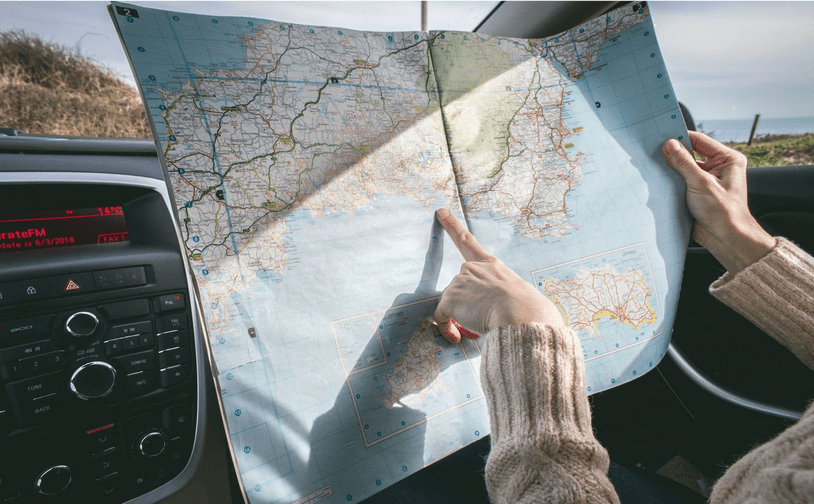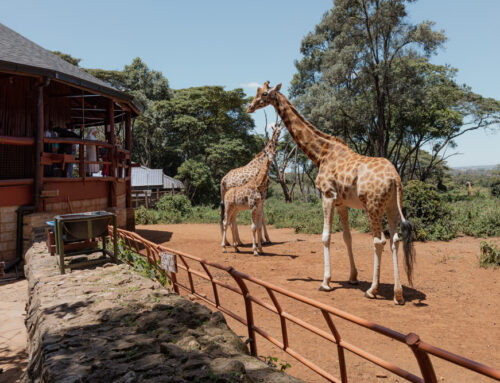12 Road Trip Safety Tips for a Smooth Journey

Embarking on a road trip is an exciting adventure that promises interesting views, new experiences, and unforgettable memories. However, ensuring your safety should be a top priority to make the journey less stressful and more enjoyable for everyone involved. Here are twelve essential road trip safety tips to keep in mind before hitting the open road.
Vehicle maintenance
Before setting out on your road trip, make sure your vehicle is in optimal condition. According to Marcus Newton of LeMans Motors and Bosch Service Brisbane, ensuring your vehicle is maintained before heading out on a road trip is vitally important. “Make sure your vehicle’s tires are in good condition and properly inflated,” he advises. “Check all fluid levels, including oil, coolant, brake and power steering fluids”. Scheduling a pre-trip inspection with a mechanic can be handy as it allows any potential issues to be addressed, minimising the risk of breakdowns.
Emergency kit
Prepare a well-stocked emergency kit that includes essentials such as a first aid kit, flashlight, blankets, non-perishable snacks, water, jumper cables, and basic tools. You never know when you might encounter unexpected situations like car trouble or getting stranded on the road. Having an emergency kit on hand can be crucial in unexpected situations, helping you deal with a myriad of scenarios until assistance arrives.
Plan your route
Plan your route in advance and share it with someone you trust. Utilise GPS or navigation apps to stay informed about road conditions, construction zones, and traffic updates. Be open to alternative routes to avoid potential delays or hazards. Planning out your route beforehand can help you avoid getting lost or stranded in unfamiliar areas. A GPS or map can also be used to plan out rest areas and fuel stops, ensuring a smooth journey.
Rest stops and breaks
Driving for extended periods can lead to fatigue, affecting your reaction time and concentration. Take regular breaks to stretch your legs, grab a snack, and rest. Plan your itinerary with designated rest stops to ensure you stay alert behind the wheel. If you’re feeling tired, it’s always better to pull over and take a nap than risk an accident. Taking breaks also allows you to appreciate the scenery, rather than just rushing to reach your destination.
Drive safe
Always prioritise safety while driving on a road trip. Stay alert and avoid distractions like using your phone or changing music frequently. It may help to switch your phone notifications off or have a pre-designed playlist to limit the temptation to check your phone. Make sure you also have enough rest before embarking on a long road trip to ensure you are well-rested and alert behind the wheel. Follow traffic rules, maintain a safe speed, and stay vigilant for potential hazards.
Emergency contacts
Before you set off on your journey, make sure you have emergency contacts saved on your phone or written down somewhere easily accessible. This could include the number for roadside assistance, local authorities, and a trusted family member or friend who can assist in case of an emergency. Having these numbers readily available can be crucial in case of unexpected situations while on the road.
Buckle up
Seat belts save lives, so make sure everyone in the vehicle is properly restrained. Ensure that children are in appropriate car seats or booster seats according to their age, height, and weight. If you are travelling with pets, make sure they are properly restrained as well to ensure their safety and prevent any distractions while driving.
Stay hydrated and snack smart
Dehydration can contribute to fatigue, so it’s essential to stay hydrated during the journey. Pack a cooler with water and healthy snacks to maintain your energy levels. Avoid excessive caffeine and sugary snacks, as they may lead to energy crashes. For longer journeys, make sure to take regular breaks to stretch your legs and refuel with nutritious meals, rather than relying on snacks.
Weather preparedness
Check the weather forecast for your route and destination before you head off on your adventure. Be prepared for varying conditions by packing appropriate clothing and supplies. Adjust your driving speed and style to match the weather, and in extreme conditions, consider delaying your trip if possible. It’s always better to err on the side of caution and safety.
Mobile phone and charger
Ensure your mobile phone is fully charged before starting your journey. Carry a car charger or portable power bank to stay connected in case of emergencies, or when embarking on longer trips. It can also be a good idea to familiarise yourself with the location of charging stations along your route, just in case you need a quick charge.
Secure valuables
Keep valuables out of sight and secure them in the trunk or a locked compartment when you’re away from your vehicles. Avoid displaying expensive items in the car, as this reduces the risk of theft. If you’re travelling with valuable items, consider purchasing a car safe or lock-box to keep them secure while on the road.
Drive defensively
Practise defensive driving by staying alert, avoiding distractions, and anticipating the actions of other drivers. Maintain a safe following distance, obey traffic laws, and be cautious in unfamiliar areas. It’s also important to be aware of your surroundings and potential hazards, such as construction zones or wildlife crossings.
By incorporating these road trip safety tips into your travel plans, you can help ensure a smooth and secure journey. Prioritising vehicle maintenance, planning your route, and staying vigilant on the road will contribute to a positive and enjoyable road trip experience.




